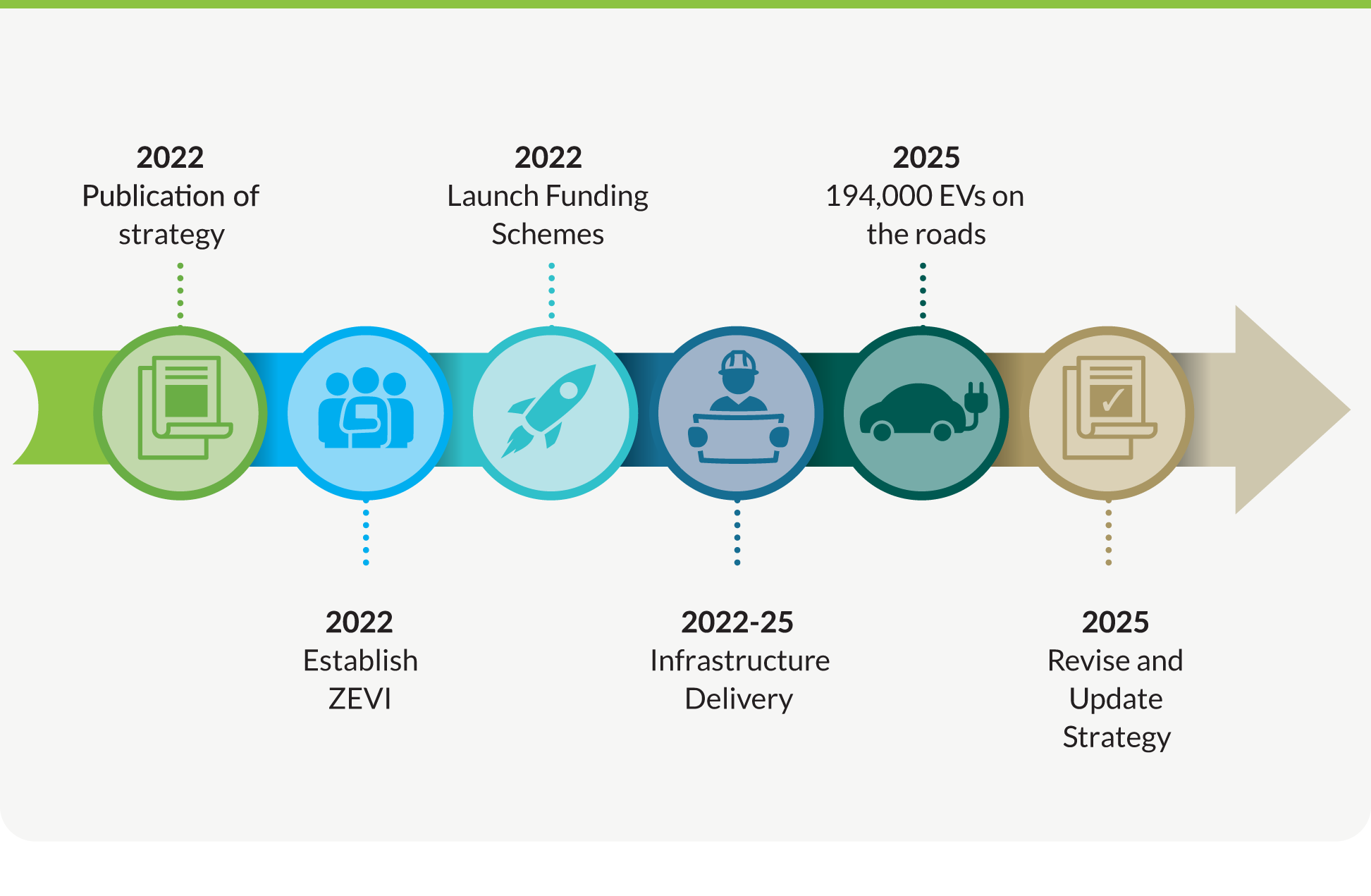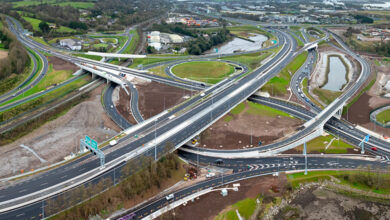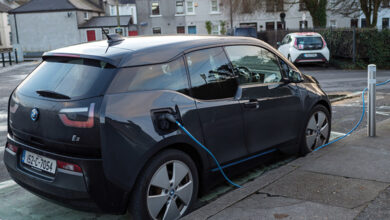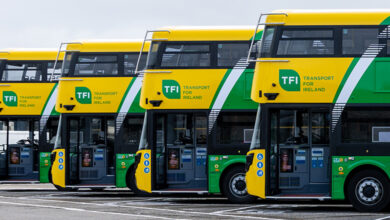A pathway to one million EVs by 2030
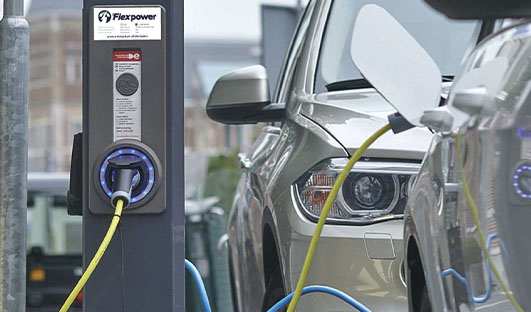
The Department for Transport is to establish an office for low or zero emission vehicles to coordinate efforts to have one million EVs on Irish roads by 2030.
Plans to establish Zero Emission Vehicles Ireland (ZEVI), within the Department, were announced as part of the Electric Vehicle Charging Infrastructure Strategy 2022-2025 consultation, which closed at the end of May 2022.
The new office will oversee the delivery of the four categories of charging infrastructure outlined in the pathway, aimed at serving different user needs, including:
• home/apartment charging;
• residential neighbourhood charging;
• destination charging; and
• motorway/en-route charging.
The Climate Action Plan sets out an ambition to have almost one million EVs on Irish roads by 2030 (€100 million allocated to 2025) and the strategy has been developed to ensure that EV charge point infrastructure provision remains ahead of demand.
At present, around 80 per cent of EV charging in Ireland is done at home and while the Department expects this to continue, the Strategy recognises “a significant gap” in relation to the provision of publicly accessible charging infrastructure and the need to meet growing demand.
Demand for electricity for EV charging
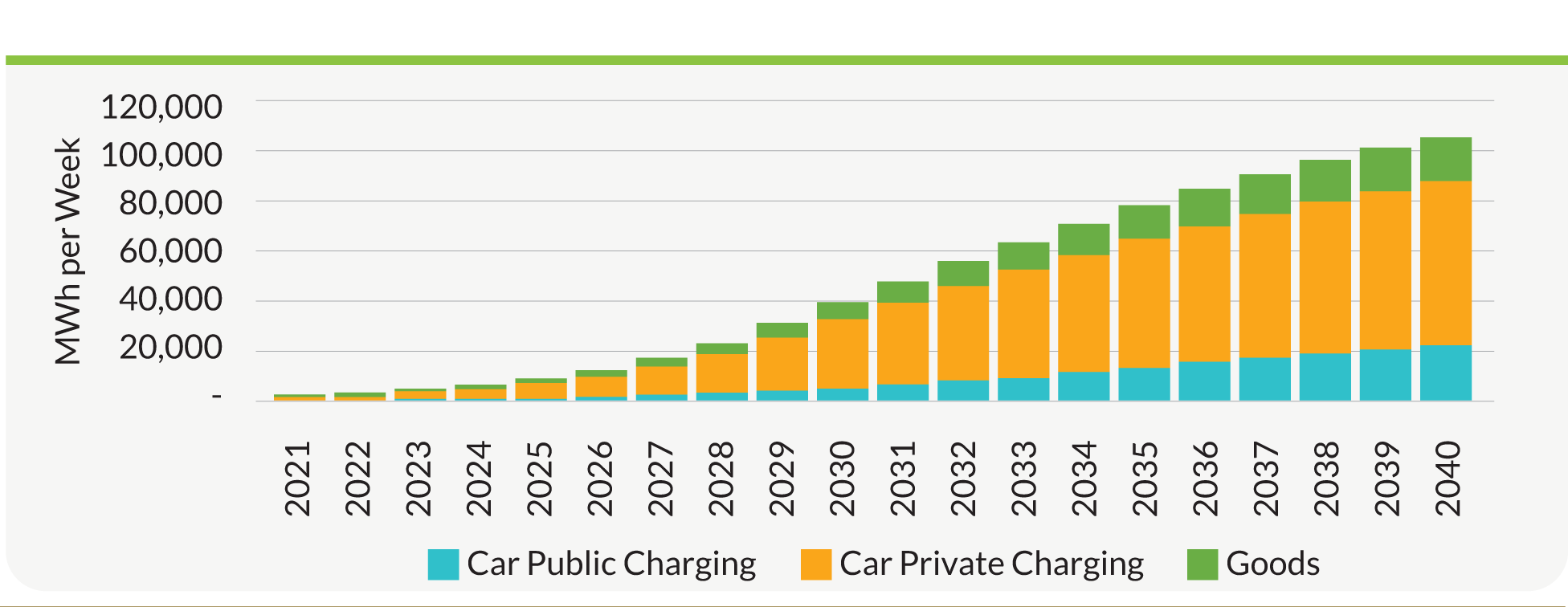
This growing demand is already evident. In 2021, over 15 per cent of new vehicle registrations in Ireland were EVs and in the first two months of 2022, Central Statistics Office figures show that this figure had risen to 25 per cent for the first two months of 2022.
Three broad areas have been identified for action to drive delivery and stimulate EV infrastructure availability. Alongside public sector actions such as EV penetration of the public fleet and cross-government co-ordination of charging infrastructure and stakeholder engagement to integrate industry, the Strategy says that government funding supports will be required to “stimulate targeted EV charge point roll-out, address gaps in EV provision and ensure a comprehensive network for all as the EV market develops”.
Although looking out to 2030 and beyond, the Strategy is targeted at delivery and actions between now and 2025, and review intervals have been built in. The first review will take place in 2025 and will deliver a detailed plan for continuing EV charging infrastructure delivery from 2026 to 2030.
Ireland’s current network of around 2,400 publicly accessible charge points operated by several service providers is less than half the current average EU level of provision. Although home charging is considered the most cost effective and convenient way of charging EVs in Ireland, around a quarter of the car owner population have no access to private off-street parking. As EV uptake accelerates, home charging is expected to remain the most common form of charging the majority of vehicles, but the Strategy recognises the need to provide the same benefits of home charging to those who cannot.
Residential on-street charge points; co-charging; destination charge points; en-route charge points; fast taxi charging hubs; and publicly accessible heavy-duty vehicle charge points are solutions identified for national and local government to facilitate.
The Department says that the new ZEVI office will be responsible for the strategic coordination of EV policy, regulation and taxation; management of EV grants and incentives, and the Delivery Plan for the EV Infrastructure Strategy. Initially, the office will bring together the range of grants currently being administered by a range of organisations but, with expectation of grants being phased out as a result of EVs achieving price parity with traditional cars, “it is expected that the delivery of charging infrastructure will be the main focus of ZEVI for the second half of the coming decade”.
It is intended that ZEVI will establish an EV Infrastructure Energy Group, bringing together government, agency and energy sector stakeholders and convene an interdepartmental and inter-agency EV Infrastructure Delivery Group. Finally, it is intended that ZEVI will establish a new multistakeholder task force, to enable a public-private partnership approach to EV infrastructure delivery. All of these groups are expected to be in place by Q3 2022.
ZEVI is expected to be established within the Department by summer 2022, with the final EV Infrastructure Strategy published in Q3 of the same year. An implementation plan is expected in Q4.
Timeline of Strategy
